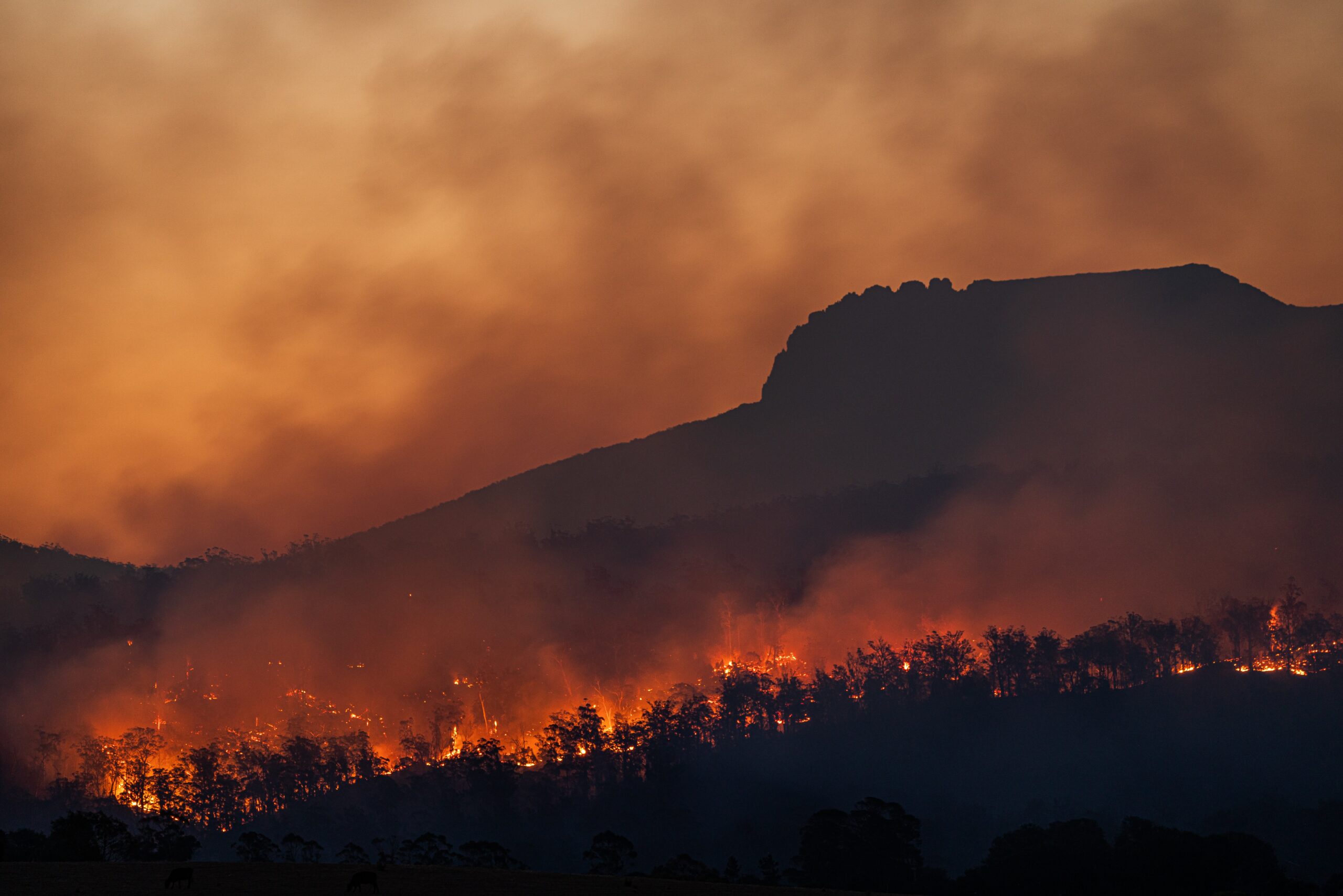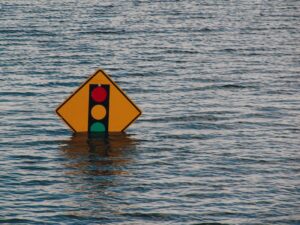We’re living in a climate emergency, yet people behave as if nothing is happening
There were forest fires in London this week. Not two words you’d usually put together, but 40°C heat and London aren’t two words that had ever been put together either. Elsewhere in Europe, heat records have shattered as the continent experiences a dose of hothouse conditions. And this is just a glimpse of what’s to come. The effects of global warming mean heat waves are set to occur far more regularly and will be far more ferocious — in the coming years, 40°C will seem cool.
The current heat wave is a timely reminder that our efforts to mitigate against the climate crisis aren’t working. While governments and companies say all the right things, CO2 emissions reached a record high in 2021, at a time they need to decrease dramatically.
As we continue to make climate emergency worse, groups like Extinction Rebellion are calling for radical change. Ironically, they are considered extremists who threaten civilisation rather than moderates who seek to push us away from a radical system that’s destroying the fabric of the natural world and, with it, threatens civilisation.
The way we organise society continues to go unquestioned by governments, even though it is economic growth and a consumer society that are creating the problem. What compounds the issue is the assumption that sustainability initiatives implemented by governments and businesses are working to solve the problem.
Governments are focused on achieving net-zero by 2050, and plenty of companies have set themselves targets to do the same. On top of this, companies are focused on embracing sustainability initiatives like Corporate Social Responsibility (CSR) and Environmental, Social and Governance (ESG). What they don’t do is question underlying economic beliefs. They don’t seek to transform but merely trim around the edges.
What’s going on here? What will it take for people to wake up to the emergency we’re living in?
The fundamental problem is that the climate emergency doesn’t feel like one. That may well feel like a contradiction seeing as we’ve just experienced an oppressive heatwave, but while it was an inconvenience, the heatwave lasted a few days. The following day temperatures went back to normal, and everyone went about their business as if it didn’t happen. It hardly felt like a life-threatening emergency.
This is the problem with the climate emergency at large. Sure, it might be getting hotter, drier, or wetter; sure, huge numbers of animals and plants are going extinct; sure, the oceans are becoming more acidic, but how does any of that affect me right now?
When I wake up in the morning, I unplug my fully charged smartphone from the electricity mains. When I open the fridge to make breakfast, it’s full of food. When I turn on the TV to watch the news, there’s no mention of a climate crisis. When there is coverage about global warming, it barely mentions just how catastrophic the situation is. When I turn on the shower, I’m soothed by hot water. When I step outside, everyone goes about their business as they always have. The ecological crisis is an emergency, but it sure doesn’t feel like there is an emergency.
And even if I know what’s in store, what can I do about it anyway? The problem is all-consuming; it affects everyone and everything, but how exactly do you trigger social transformation? It’s not entirely clear what needs to change and how those elements of society can be changed.
The climate emergency is unlike any other because the impacts aren’t immediately noticeable, but due to tipping points, it will be too late to do anything about it when they do become noticeable. A tipping point is when a natural process or system is pushed into a new, unrecognisable state. As we place more pressure on the natural world, the likelihood of breaching tipping points increases.
In some cases, it’s likely tipping points have already been breached. The West Antarctic Ice Sheet is collapsing and could lead to 3 metres of sea level rise, the Amazon Rainforest is dying and could turn into savannah in a matter of decades, and permafrost is melting in Siberia, which could unleash a carbon bomb larger than the amount of carbon dioxide ever emitted by humanity. And the thing about tipping points is they have a cascading effect; once one system tips, it creates s a domino effect that can then set in widescale changes on a global scale.
Hollywood has tarnished our perception of environmental emergencies; it doesn’t do slow creeping changes that take decades to reveal their impacts; it does big explosions, destructive hurricanes, and catastrophic tsunamis. Nature doesn’t work that way. It changes slowly, but when those changes are perceivable, the effects will be overwhelming.
The issue with tipping points is that we don’t know when a tipping point will be breached, but we certainly will feel the impacts once natural systems transform due to the pressures we’re placing on the climate.
If tipping points are breached, then everything changes. The goods and services needed to provide our needs will become far harder to meet. Crop yields will significantly reduce, leading to less food and higher prices. More people will go hungry. When people go hungry, they riot.
That’s what happened before the French and Russian revolutions. Historically it’s only in moments of crisis that the fabric of society has weakened and provided revolutionary groups with the opportunity to redesign society in their own image. It seems the only way any such social transformation will be realised now is if a similar breakdown of law and order presents an opportunity to replace a system pushing us further away from ecological limits (while failing to meet billions of people’s needs) with one that provides peoples needs within ecological limits.
For now, though, people aren’t engaged in solving problems that don’t directly impact their lives. They certainly wouldn’t buy into the need for the government to implement radical policies or systems change. People’s reactions to the ecological crisis reflect that bitter reality. Without reading about the dire implications of our current path, there isn’t a compelling argument for why systems change is necessary. And that’s why, as hard as it is to accept, the majority will continue sleepwalking into oblivion while the rest of us are forced to go along for the ride.



